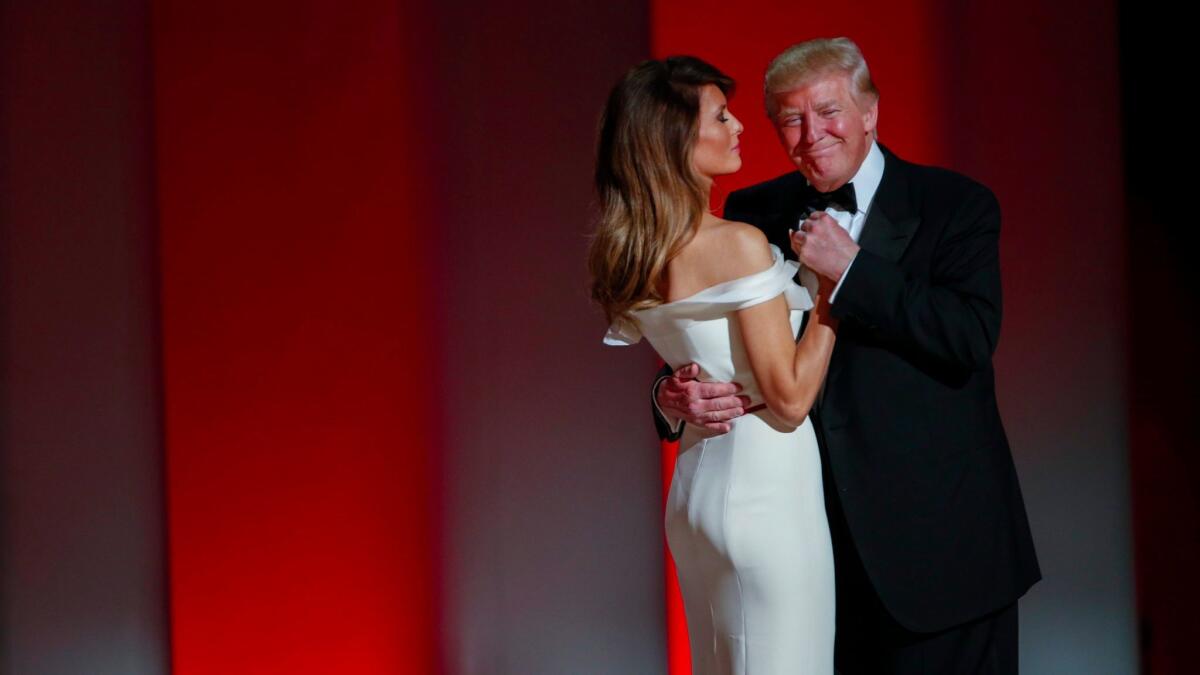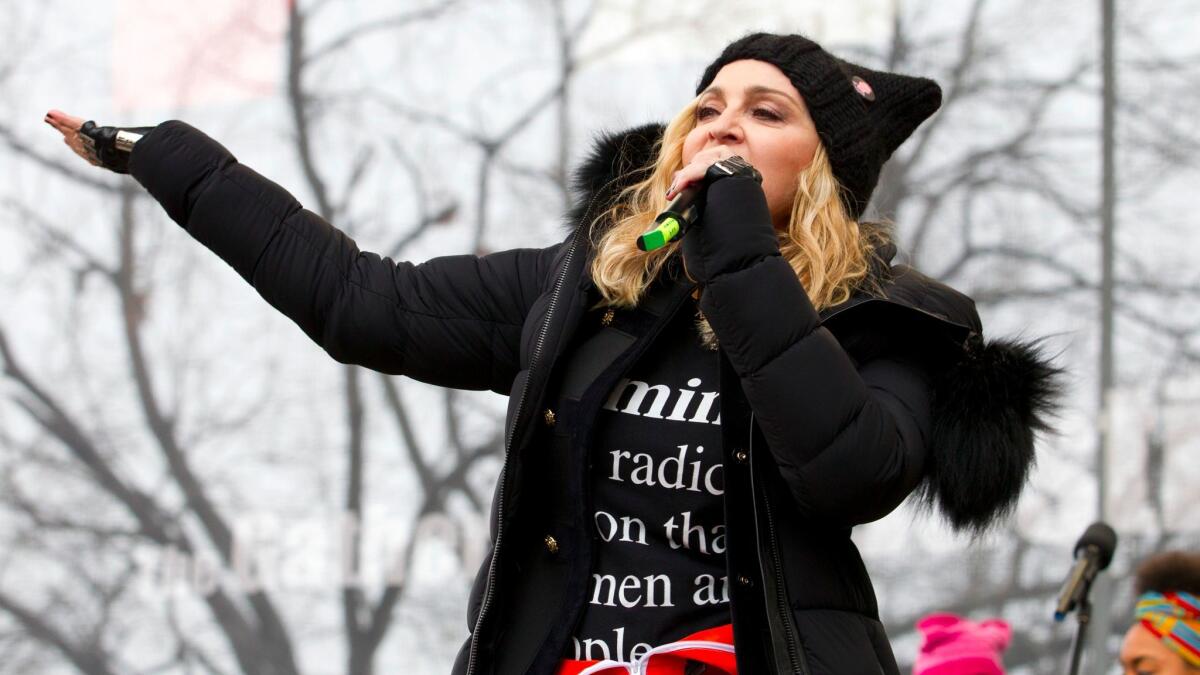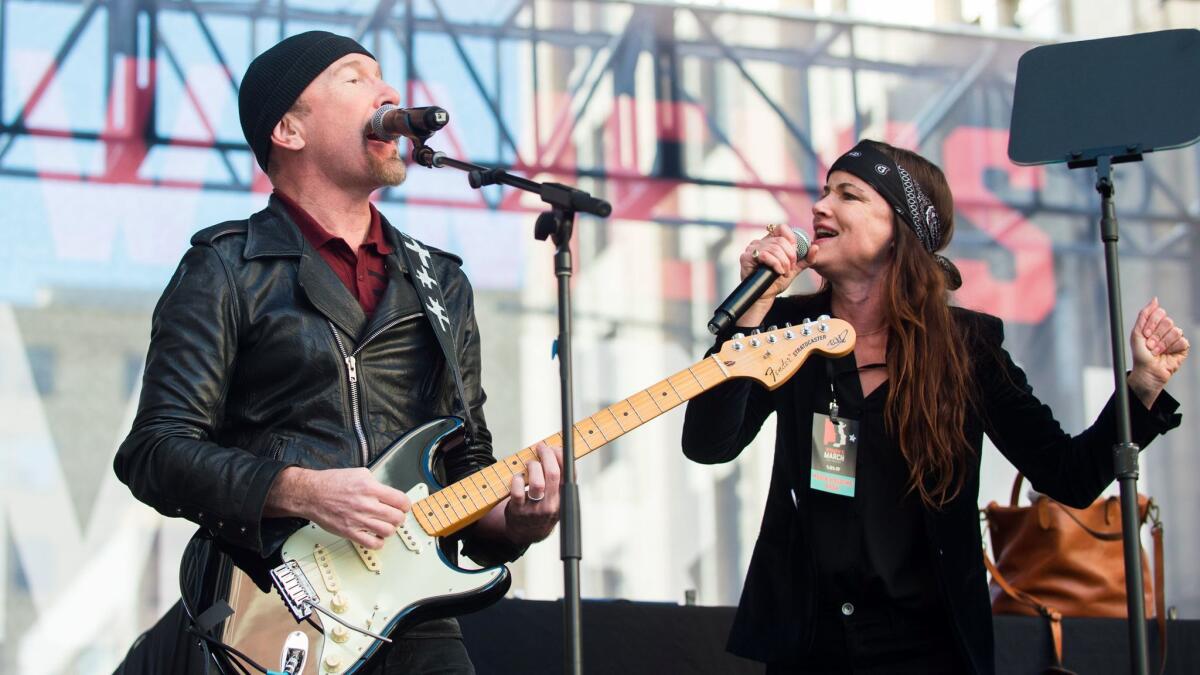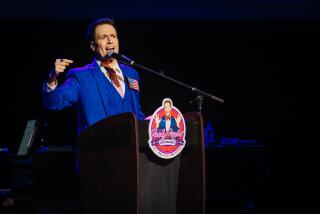‘I ain’t got no love’: Why Donald Trump’s musical choices matter

The words felt like private thoughts found in an old diary and newly exposed to fresh air.
“If you try acting sad, you’ll only make me glad.”
“I ain’t got no love, I ain’t the kind to meet.”
“Regrets, I’ve had a few — but then again too few to mention.”
Yet this wasn’t the sour fruit of opposition research. The words are lyrics from two songs prominently featured in Donald Trump’s inaugural festivities: the Rolling Stones’ “Heart of Stone,” which played as Trump and his wife Melania entered a celebratory concert at the Lincoln Memorial, and “My Way,” the standard popularized by Frank Sinatra that accompanied the first couple’s first dance at an inaugural ball.
Let that sink in.
At a moment when millions of Americans were looking to the new president for signs of hope, inclusion or generosity — for anything beyond the acrid demagoguery many felt marked his campaign — Trump chose songs that proudly delivered messages of callous self-regard.
Could he have been trolling the critics he refers to as enemies?
If so, Trump wasn’t the only one weaponizing music over the weekend. At another inaugural ball, the Piano Guys — an irritating pop-classical foursome that found fame doing goofy covers on YouTube — performed Rachel Platten’s “Fight Song,” widely known as Hillary Clinton’s campaign theme.
Afterward, Platten took to Twitter to say she hadn’t given the group permission to play the song, which prompted the Piano Guys to tweet that their selection “had nothing to do with Hillary Clinton or politics.”
Oh, come on.
At the Lincoln Memorial concert, country star Toby Keith — who as recently as October was publicly referring to Trump as a “media whore” — seemed to take a whack at his famously impulsive host with “American Soldier,” his ode to an even-keeled fighter.

And then of course there was Madonna, one of the highest-profile celebrities to appear at Saturday’s Women’s March on Washington, D.C. Performing her song “Human Nature,” the singer added an unprintable command that answered the sexual aggression of Trump’s vulgar “Access Hollywood” comments.
Remarkably, though, Madonna was an outlier Saturday. More typical of the demonstrations in Washington and elsewhere — at least as presented in the media coverage Trump would no doubt call dishonest — were musical performances that reached for the kind of optimism and sensitivity lacking from the president’s events.
You heard it in Maxwell’s tender rendition of Kate Bush’s “This Woman’s Work,” his creamy falsetto a reassuring balm after Trump’s talk of American carnage. You heard it in “Pride (In the Name of Love),” U2’s stirring tribute to Martin Luther King Jr., which the Edge and Juliette Lewis performed in Los Angeles.
And you heard it in “Girl on Fire” as sung by Alicia Keys, who tweaked the lyrics of her tune to encompass the thousands of women standing before her in Washington.
“These girls are on fire,” she sang, in stark contrast with the man who picked “My Way” to reflect the state of his marriage.

Were these touchy-feely gestures mere exercises in brand management? To some extent, sure: Even the most altruistic pop star needs her fans to like her, and one way to accomplish that is to make fans feel good about themselves.
But so are presidents expected to provide a sense of uplift, never more perhaps than in their first few days in office. Music is a cheap and easy way to do that; indeed, it’s a cheap and easy way to fake it, as countless politicians have demonstrated by co-opting spirited tunes they clearly don’t agree with (or even understand).
Trump’s supporters might point to his hard-nosed song choices as proof of his fortitude: Here’s a guy unwilling to sugarcoat the truth.
But maybe his grim selections also indicate an inability to dream.
Twitter: @mikaelwood
More to Read
The biggest entertainment stories
Get our big stories about Hollywood, film, television, music, arts, culture and more right in your inbox as soon as they publish.
You may occasionally receive promotional content from the Los Angeles Times.







